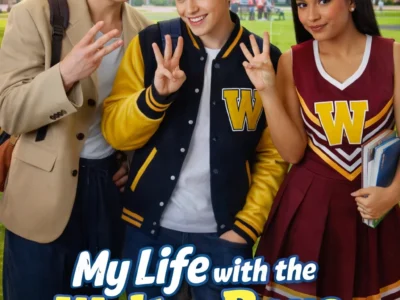
There was a time I considered the Thanos-like domination of Marvel Studios over the last generation of studio moviemaking to be a mixed blessing, if an increasingly dispiriting blackmail routine: You’ve seen the other ones, whaddya not gonna see this new one?
But now I feel differently about the Marvel predicament. Even accounting for the good Marvel movies, beginning with “Iron Man” in 2008, there’s no longer any “mixed blessing” about it.
I sometimes wish that “Iron Man” had been less good, less profitable and less of a redirect for an entire, flailing generation of cinema. Marvel’s reign has messed up much of what’s left of traditional Hollywood, leading studios away from any mid-budget projects unrelated to webs and infinity stones. An entire middle class of studio filmmaking is gone now, along with most every studio’s fiscal sanity. Is Hollywood cut out for much beyond the green green-screen soundstages of Atlanta, or Pinewood Studios in London? (The latter was where much of Marvel’s latest was filmed.)
After its disappointing COVID-era releases and fatigue, Marvel is very likely financially back in business with the R-rated buddy franchise offshoot “Deadpool & Wolverine,” starring Ryan Reynolds as the unkillable wisenheimer Deadpool and Hugh Jackman as Wolverine — back from the dead after “Logan” killed him off, but whatever. Death has no real meaning in these movies.
How’s this one? Depressing. It’s two hours of creative fatigue and nattering comic strain, wandering through a limb-strewn quantum realm of bleh. But it knows its audience. The shameless, needy streak of sentimental nostalgia in “Deadpool & Wolverine” can’t lose with millions who shelled out for the earlier pictures.
By now Deadpool, aka Wade Wilson, is living his tamped-down, no-fun life selling cars and stewing in romantic regret. A rogue element within the Time Variance Authority, meantime, plans to redo some of the multiverse timeline wiring, not to Earth’s present-day benefit. Once Wade realizes this, he goes looking for Wolverine to help him save the planet.
Many different Wolverines and Deadpools populate the many timelines of “Deadpool & Wolverine.” Much of director Shawn Levy’s film, working from a string of witless quips written by Levy, Reynolds, Rhett Reese, Paul Wernick and Zeb Wells, strands the headliners in The Void, a purgatorial Mad Max-y desert populated by troublesome characters dumped there by the TVA. Chief adversary: Cassandra Novin (Emma Corrin, doing what she can), twin sister of Dr. Charles Xavier, who has her own plans for eternal domination.
A slew of guest stars from an adjacent superhero franchise drop in for a while, thank god. One in particular got an audible rise from the preview audience Monday, but I’m not sure how much fun even the die-hards were having. To my eyes, “Deadpool & Wolverine” doesn’t really know what it’s doing outside of making money. It’s a clod in terms of action cinema technique. It’s barely functional even if you’re into the kind of violence it’s selling, i.e., restless digital/practical mashups of vivisections, beheadings, blood geysers, ironically deployed needle-drops and occasional stabs at sincerity.
Reynolds retains his skittery comic timing, and Jackman (while tonally a little lost here) certainly put in his time with a personal trainer. But there isn’t a single shot in Levy’s film that flows excitingly into the next one. The first “Deadpool” worked well enough as an exercise in “Mystery Science Theater”-heckling your own movie. The sequel worked quite a bit better than that, because director David Leitch came from the stunt world and knew how grisly was too grisly, even in Deadpool’s sphere of chipper, depraved mayhem. “Deadpool & Wolverine” settles for manic, gamer-style ultraviolence where death isn’t a thing, really, but where the grotesque sight gags start to feel not simply hollow, but kind of awful.
When mainstream commercial filmmaking sinks to this level, starting with the script and ending in the editing room, audiences of all ages can become flattened on a subconscious level, and then that deflation starts to feel like the norm. Younger Marvel fans don’t know what they’re missing; to most every age of moviegoer today, this is how things are. (Aside: Don’t take anyone under 12 to this, and I say that knowing millions will.) Great popular filmmaking, when we’re treated to it, sharpens our appreciation for what’s possible. And it has a ripple effect: We get interested in other kinds of movies, other ways of shooting and framing and cutting action or dialogue on screen, whatever the source material. And then the world of the movies opens up to more than whatever movie we’re watching at the moment.
This one’s crap. I should’ve led with that to save time.

